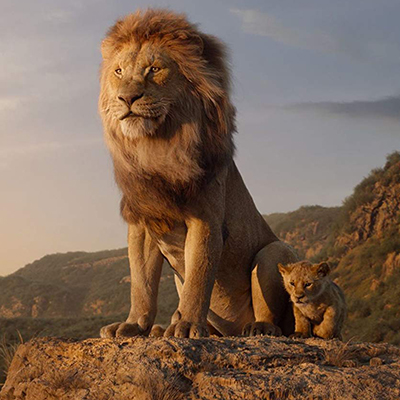Introduction
The Lion King is celebrated not only for its stunning visuals and memorable soundtrack but also for its rich exploration of identity, growing up, and leadership. At the heart of the film lies the story of Simba, whose journey from a carefree cub to a responsible leader encapsulates the struggles of maturation and the importance of discovering one's true self[2][3].
Struggles of Growing Up and the Search for Identity
Simba's evolution is a vivid depiction of the challenges inherent in growing up. Initially portrayed as an impulsive and carefree cub, Simba struggles with internal conflicts and the weight of expectations placed upon him. His journey is marked by moments of self-doubt and recklessness, which are integral to his process of self-discovery. The film illustrates that identity is not a fixed state but an evolving blend of past lessons, personal experiences, and emerging responsibilities[4][2].
The narrative underscores that the path to maturity is fraught with emotional and ethical dilemmas. Rather than remaining lost in a state of perpetual innocence, Simba is forced to confront the consequences of his actions and acknowledge the legacy of his past. His early flirtations with the escape offered by a life free of responsibility gradually give way to the painful, yet necessary, process of self-confrontation and acceptance. This transformational process emphasizes that understanding one's identity requires accepting both strengths and weaknesses, a theme that resonates deeply with audiences of all ages.
Embracing Leadership and Responsibility
Integral to Simba's character development is the evolution of his understanding of leadership. The film contrasts two distinct philosophies: the carefree 'Hakuna Matata' lifestyle and the weighty responsibility that comes with true kingship. During his early years, Simba is seduced by the idea of a life without worries and consequences; however, this temporary escape only prolongs his inner conflict and disconnect from his destiny. Over time, he learns that leadership is not merely about enjoying personal freedom but also about fulfilling a duty to others[1].
As Simba gradually embraces responsibility, the film showcases how leadership demands the courage to accept one's past and to stand firm in the face of adversity. This transition is not instantaneous but the result of facing numerous trials that test his resolve and determination. The concept of the Circle of Life emerges as both a literal and metaphorical reminder that every individual, regardless of their starting point, has a role to play in maintaining harmony and balance within a broader community[3].
Mentorship and the Influence of Father Figures
A crucial element in Simba's journey is the guidance provided by mentorship and strong father figures. Mufasa, Simba's father, embodies the virtues of wisdom, self-sacrifice, and dignity. Through his gentle teachings and commanding presence, Mufasa instills in Simba the understanding that being a leader requires more than physical strength—it necessitates moral clarity and emotional maturity[5].
Even in his absence, Mufasa's influence permeates Simba's decision-making and self-perception. A pivotal moment in the film occurs when the spirit of Mufasa appears to remind Simba of his true identity and calling. The simple yet powerful words, "Remember who you are," serve as a turning point, compelling Simba to reclaim his lost confidence and step into the role he was destined for[6]. This moment of reconnection clearly delineates the difference between a life of evasion and one of purposeful leadership, highlighting the importance of parental guidance and the enduring impact of a father's legacy.
Integrating Identity and the Burden of Legacy
Beyond the immediate lessons of leadership, Simba's journey delves deeply into the notion of identity as a continuous process of becoming. The film artistically presents the idea that personal growth is inextricably linked with embracing both one's past and one's future. While the carefree influence of friends like Timon and Pumbaa temporarily shields him from the harsh realities of his lineage, it is only when Simba confronts his past that he can fully grasp the responsibilities that come with his birthright[6].
This aspect of his journey is a compelling commentary on the universal struggles faced when reconciling one's personal desires with societal and familial expectations. The tension between the allure of a worry-free existence and the inevitable call to duty is portrayed with nuance, emphasizing that the process of self-realization often involves confronting uncomfortable truths and internal insecurities. The film suggests that true identity is not merely inherited but actively shaped through choices made in the face of adversity.
Conclusion

In summary, The Lion King masterfully intertwines themes of growing up, identity, and leadership through the transformative journey of Simba. From his early days as a naive cub to his eventual emergence as a courageous leader, Simba's progression is emblematic of the challenges that define the journey toward adulthood. His struggles—and eventual triumph—illustrate that maturity arises from the reconciliation of one's past with the responsibilities of the present, a process deeply influenced by mentorship, self-reflection, and the inescapable call of destiny[4].
Through vivid storytelling and memorable symbolism, The Lion King reminds us that leadership is built on the foundation of self-awareness and that true identity is found when one embraces both light and shadow. Ultimately, Simba's journey serves as a timeless reminder that every individual must navigate the delicate balance between personal freedom and communal duty, forging a path that reflects not only the struggles of growing up but also the enduring power of self-discovery and responsibility[1].
Get more accurate answers with Super Pandi, upload files, personalized discovery feed, save searches and contribute to the PandiPedia.
Let's look at alternatives:
- Modify the query.
- Start a new thread.
- Remove sources (if manually added).









